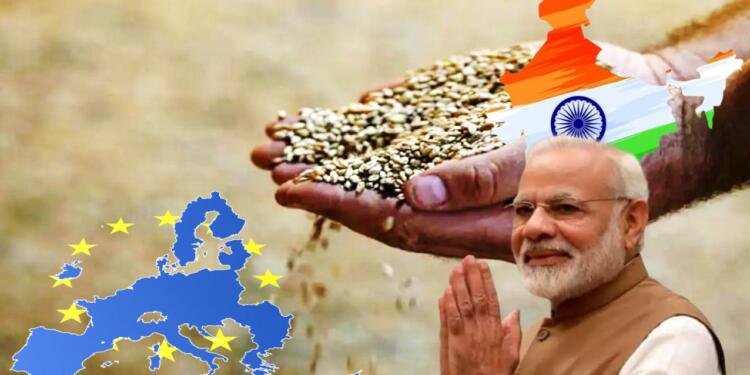Wheat prices are soaring around the world. Ever since Russia invaded Ukraine, wheat futures shot up to a record of more than $14 a bushel, and are now trading at close to $11.5 per bushel (1 Bushel ≈ 30 kgs). Together, Russia and Ukraine make up about 30 per cent of global wheat exports. Russia has been sanctioned, and Ukraine has banned wheat exports. That leaves the world, especially Europe in a very precarious situation. You see, Ukraine is known as the breadbasket of Europe. Unfortunately, that basket has been turned upside down by Russia. Now, Western Europe is in desperate need of wheat supplies.
But Europe need not worry. India is more than capable of saving Europeans who might find themselves on the verge of starvation. India has gigantic wheat reserves, which it can tap into to help a hungry Europe. Already, India is in final talks to start wheat exports to Egypt – one of the largest importers of wheat from Ukraine as well as Russia. Separately, the Modi government is also in discussions with countries such as Turkey, China, Bosnia, Sudan, Nigeria, and Iran among others, to start wheat exports.
India is the second-largest producer of wheat with a share of around 14.14 per cent of world total production in 2020. Recently, the Modi government had directed India’s diplomatic missions abroad to facilitate the export of the country’s record domestic stockpiles of wheat. Currently, India has more than 100 million tonnes of food grains in state-held granaries.
Indian Farmers the Big Winners
India has a distinct advantage over other countries when it comes to filling the void that the absence of Ukrainian and Russian wheat supplies has caused around the world. This week, the rabi crop will arrive at India’s mandis, while global producers will have to wait till June-July for the harvest.
Already, according to BloombergQuint, wheat farmers across Madhya Pradesh, Punjab and other parts of India have been receiving enquiries since last week from food grain exporters. This has led to farmers skipping government procurement at minimum support price (MSP) and selling to exporters instead.
Private procurers are offering farmers up to Rs 2,700 a quintal. Therefore, farmers are poised to make an additional profit of close to Rs 600, considering the fact that the government procures one quintal of wheat at Rs 2,015.
India produces around 107.59 million MT of the food grain annually while a major chunk of it goes towards domestic consumption. At a time when Europe is struck by crisis and faces a massive food security conundrum, India will be more than willing to extend a helping hand. All that Europe needs to do is ask for help.
Read more: How Europe dumped Islamism in 2021
India has been exporting wheat to a famished Afghanistan as well, despite the Islamist Taliban regime being in charge of the war-torn country. India looks at alleviating the woes of poor, helpless and hungry citizens who unnecessarily get drawn into conflicts. If India can help Afghans during their time of need, it can surely supply Western Europe with the food grain as well.
No country can fix Europe’s food woes except India. We have the logistics and supplies to extend immediate help to Europe. It is for this reason that Europe is looking coyly at India’s wheat stockpiles.

























